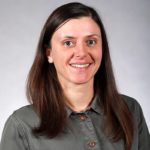Anant Sahai
Biography
Anant Sahai did his undergraduate work in EECS at UC Berkeley, and then went to MIT as a graduate student studying Electrical Engineering and Computer Science (Course 6 in MIT-speak). After graduating with his PhD, and before joining the Berkeley faculty, he was on the theoretical/algorithmic side of a team at the startup Enuvis, Inc. developing new adaptive software radio techniques for GPS in very low SNR environments (such as those encountered indoors in urban areas).He currently serves also as faculty adviser to UC Berkeley’s chapter of Eta Kappa Nu. He has previously served as the Treasurer for the IEEE Information Theory Society.
His research interests span information theory, decentralized control, machine learning, and wireless communication — with a particular interest at the intersections of these fields. Within wireless communication, he is particularly interested in Spectrum Sharing and Cognitive Radio, very-low-latency ultra-reliable wireless communication protocols for the Internet Of Things, and how agents could learn how to communicate with each other without the need for heavy-handed standards. Within control, he is interested in decentralized control and how agents could learn how to cooperate and interact with unknown environments. He is also interested in the foundations of machine learning, particularly as it pertains to why overparameterized models do or do not work.
Education
- 2001, PhD, EECS, Massachusetts Institute of Technology
- 1996, SM, EECS, Massachusetts Institute of Technology
- 1994, BS, EECS, University of California, Berkeley
Research Areas
- Information, Data, Network, and Communication Sciences (IDNCS), Information Theory, Cognitive Radio and Spectrum Sharing, Wireless Protocols
- Artificial Intelligence (AI), Learning for collaboration and coordination; machine learning
- Control, Intelligent Systems, and Robotics (CIR), Distributed and Networked Control
- Theory (THY), Information Theory
- Signal Processing (SP)







